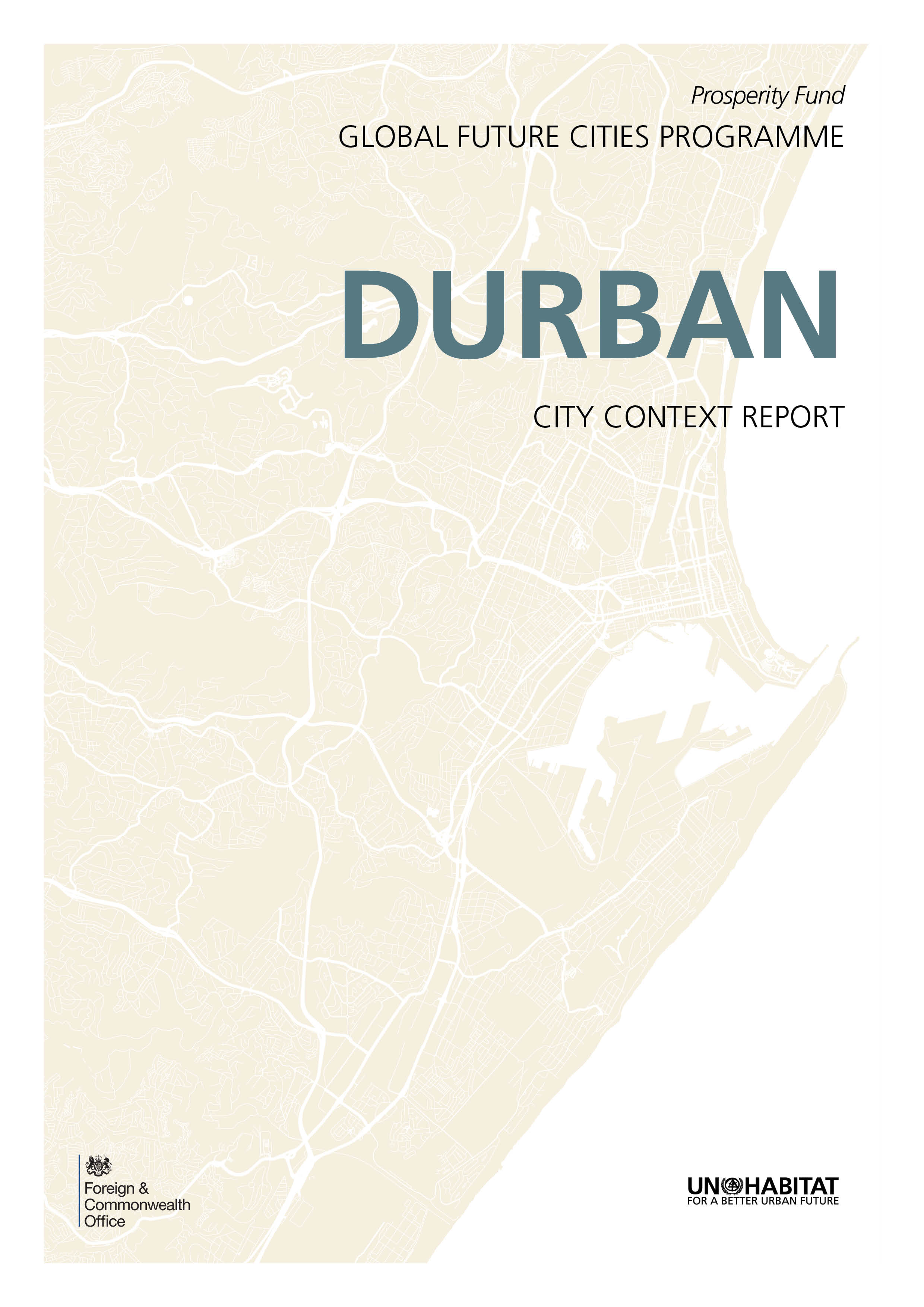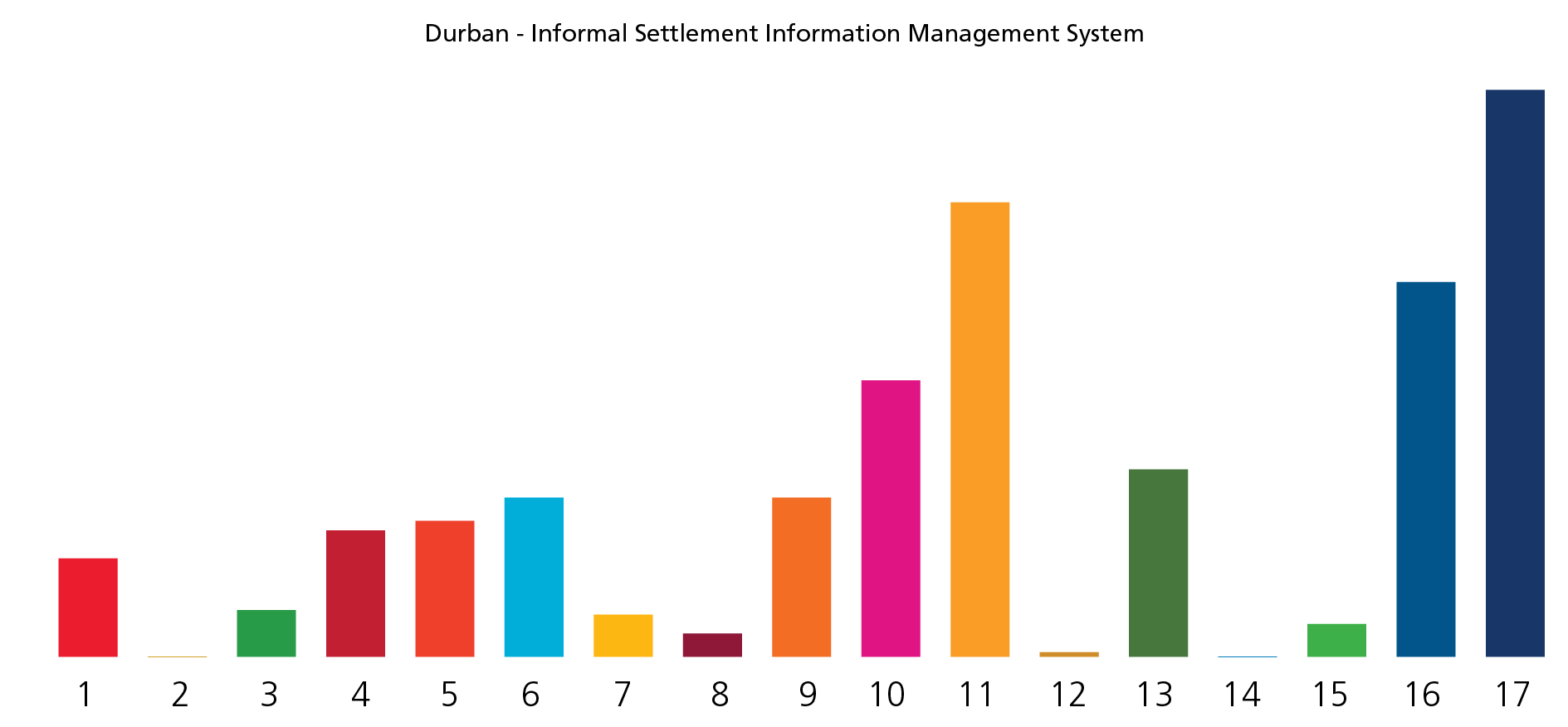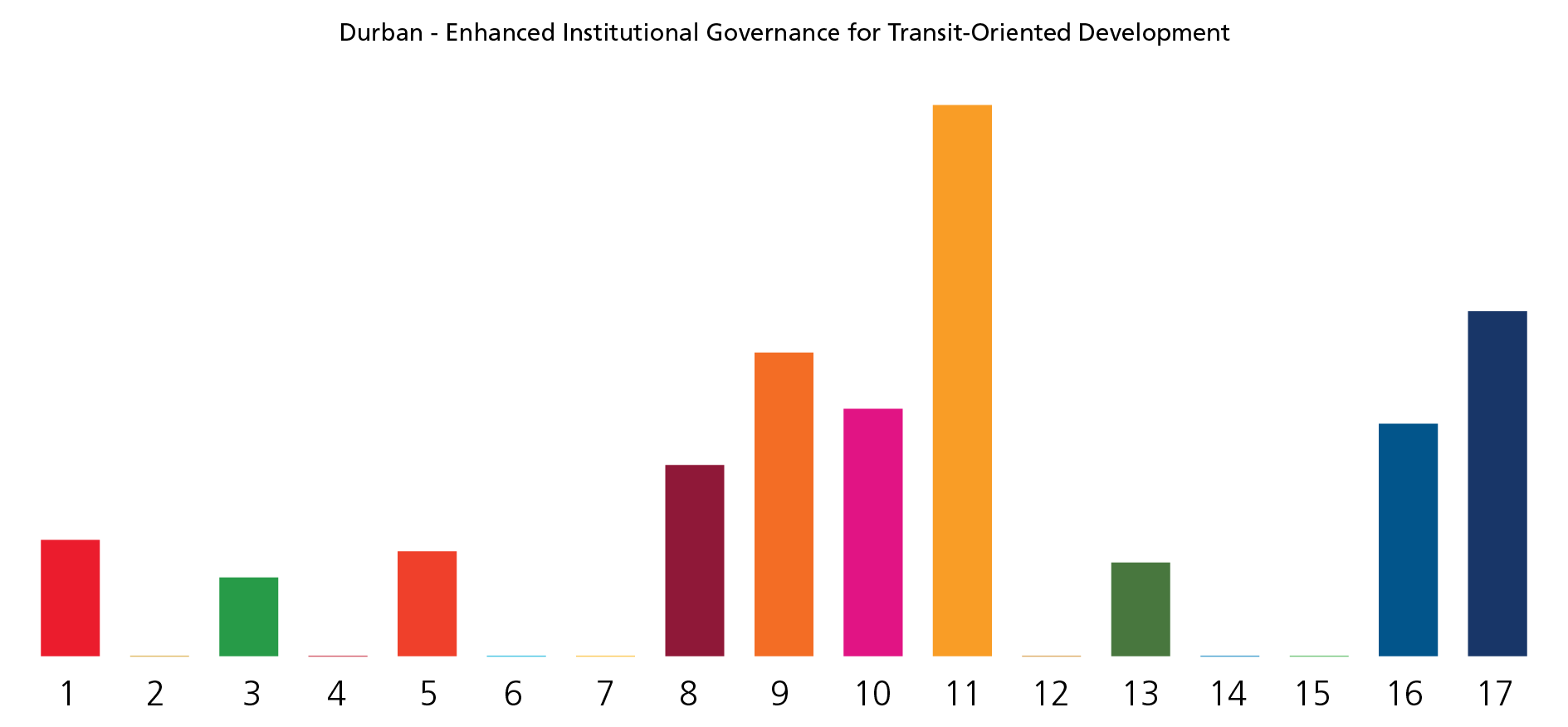Overview
Durban is located on the east coast of KwaZulu-Natal (KZN) Province in South Africa and eThekwini Municipality is the local government responsible for management and service provision across the eThekwini Municipal Area. Durban is the third most populous city in South Africa and the largest city in the South African province of KwaZulu-Natal. Durban forms part of the eThekwini Metropolitan Municipality and has a population of about 3.9 million. It is located on the east coast of South Africa and is well known for being one of the busiest ports in the country. It is also seen as a major centre of tourism, is the second most important manufacturing hub in South Africa and is located in a global biodiversity ‘hotspot[1]’, thus enjoying a high level of plant and animal diversity. Durban’s apartheid past has played a significant role in shaping many of the challenges experienced by the city, which include the ongoing spatial marginalisation of many communities from transport access and their places of work, as well as the increasing levels of informal development (e.g. informal settlements) as people try to move closer to the city and economic opportunities. A large proportion (approximately. 25%) of the population lives in informal, often un-serviced settlements. Despite being the economic backbone of the province and a major role player in the South African economy, unemployment rates are high and there is a high rate of income inequality (Gini coefficient of 0.62), which is characteristic of many cities in South Africa.
The two projects identified for Durban are: “Enhanced Institutional Governance Coordination for Supporting Alignment of Stakeholder Plans Working on Transit-Oriented Development on Durban” and “Improved Data Integration, Collection and Analysis to Facilitate Collaborative Informal Settlement Action”
[1] A biodiversity hotspot is a biogeographic region with significant levels of biodiversity, but where that same biodiversity is highly threatened
Highlighted Publication

Durban City Context Report
Download Document
Challenges
Projects
1 Informal Settlements Information Management System (ISIMS)
View DetailsAccording to the eThekwini Municipality, there are 569 informal settlements in the city, which comprise of about 250,000 households and are home to more than a quarter of the total population. Despite the city’s efforts to address the spatial, economic and social inequalities within informal settlements, they have continued to proliferate on the urban periphery and deprive residents of economic and social prosperity.
The overall objective of the Project is to develop a data management solution that will facilitate the collection, analysis and integration of data related to informal settlement planning, upgrading and support.
While data on its own will not directly improve the condition of informal settlements, it could provide a starting point for informed, evidence-based collaborative action. This could develop the basis for the establishment of proactive and innovative city-wide partnerships to develop and execute inclusive and sustainable informal settlement upgrading and integration.
Data is therefore intended as a planning tool for readdressing spatial, social and economic inequalities to support urbanisation.
Project Timeline
-
Charrette
October 2018 -
Validation Workshop
November 2018 -
MoU signing
-
Kick-off Meetings
September 2019 -
SDG Project Assessment Tool Tailoring Workshop
January 2020 -
First SDG Assessment Session
September 2020
SDG TOOL

2 Enhanced Institutional Governance for Transit-Oriented Development (TOD)
View DetailsApartheid and post-Apartheid planning have left a legacy, a deep mismatch between areas of residence and areas of employment concentration. The current urban structure has led to unsustainable urban sprawl, given rise to long commuting times, increased travel costs
and high unit cost of infrastructure as well as primarily precluded the development of mixed land use.
Durban has a significant base of public transit ridership. However, those riders are economically disadvantaged as private cars are the preferred choice for those who can afford it. The major issue in transport is the high social and economic costs, especially in terms of residential patterns, due to the current urban structure.
The overall objective of the proposed intervention is to develop a multi-sectoral institutional model that acts a coordination tool to plan, implement and operationalise TOD and to formulate a change management process to foster alignment of stakeholder plans, both public and private sector.
Project Timeline
-
Charrette
October 2018 -
Validation Workshop
November 2018 -
MoU signing
-
Kick-off Meetings
September 2019 -
SDG Project Assessment Tool Tailoring Workshop
January 2020
SDG TOOL

